Davor Nađi Interview: "Fokus Party Not for American-style Economy, Dutch or Scandinavian Preferred"
July 16, 2021 - One month after the local elections in Croatia, the liberal/center Fokus party president shares with TCN reflections of his Zagreb mayor candidacy, details on political views, plans, and hope for the future of Croatia. Learn more about the Fokus party in an exclusive Davor Nađi interview conducted by TCN reporter Ivor Kruljac.
2021 local elections for Croatia concluded back in June, and as with every local election, the majority of political parties whose candidates earned some new positions in the local governments managed to taste both victories and losses are overall happy. Some parties from both left and right political wings celebrated as scientists whose work won the Nobel prize. Even election losses were interpreted as victories, drawing attention to the number of votes, that although they may not score political roles, show growing support. If there is a once in four years occasion when political parties have as much optimism as the Croatian Adriatic has drops of water, it’s the local elections.
Currently in parliamentary opposition, Davor Nađi, president of the Fokus political party, politically declared as center-oriented, also doesn't hide his optimism following the result, but it seems he is a bit more toned down in that excitement than some of his political competitors. Satisfied to see his colleagues from the party keeping their previous positions, and some even selected for new ones, he is expecting the Fokus party to grow in the future while remaining aware of Fokus being new and young on the scene - is careful to say more than he can bargain for. Nađi ran for Zagreb mayor, but in the end, didn't manage to win neither the "main prize" nor a seat in the Zagreb Assembly. He noted, however, that his candidacy helped to attract new Fokus members in Zagreb, but again stating it without grandiose announcements, rather with mild optimism, careful not to step out of the line of realism.
In an e-mail interview, Nađi commented what happened in the Zagreb elections, did NGOs stepped out of line in supporting current mayor Tomislav Tomašević, and what do Fokus voters find attractive in the political party best known for reforming the town of Sveta Nedelja. Are they American-styles libertarians as described by some, and what European politicians are in line with Fokus’s ideas, are just some of the things Nađi revealed in the interview.
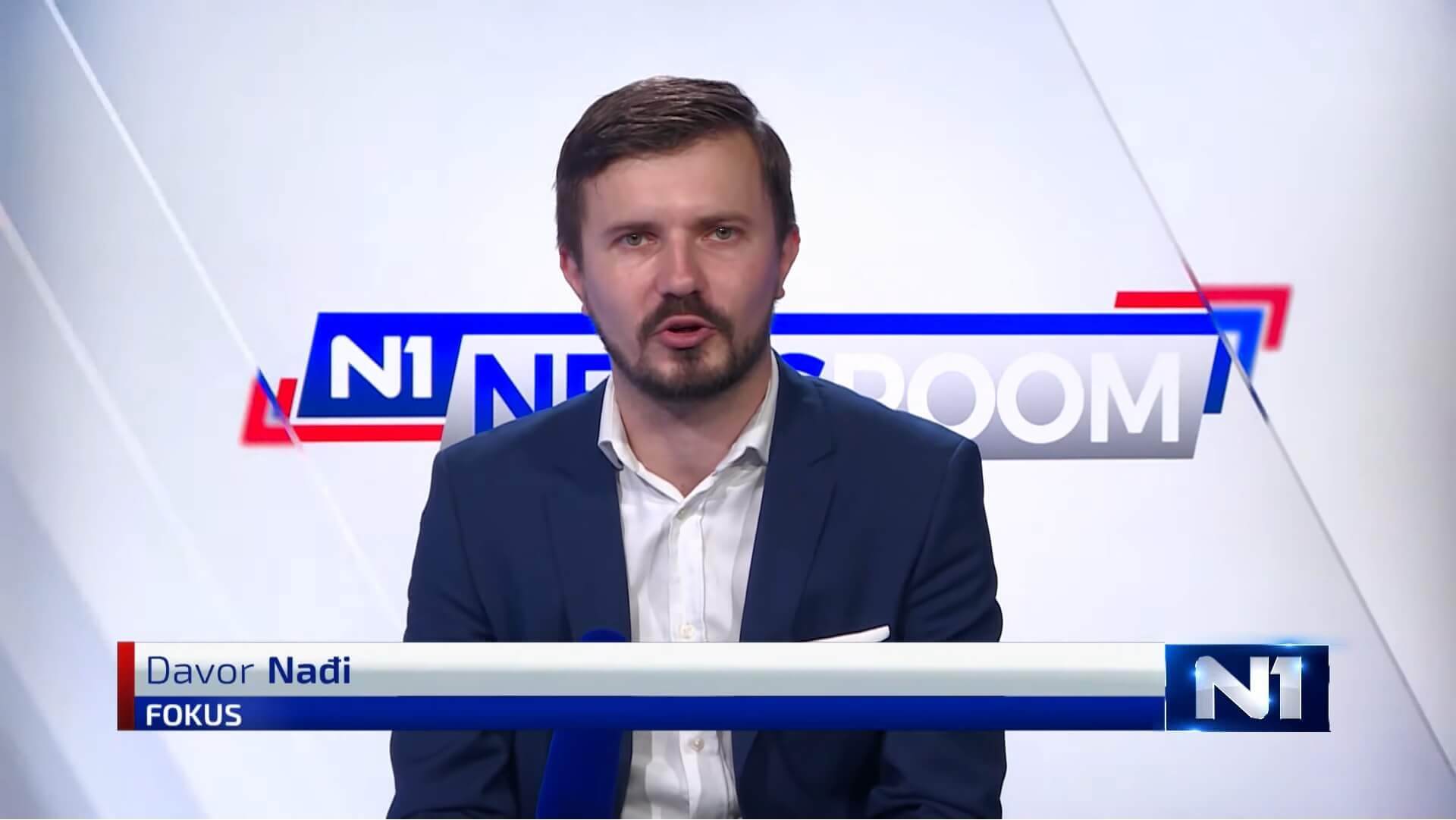
screenshot / N1
You are the president of the Fokus party, and candidates from your party had won in Sv. Nedelja, Samobor, Sv. Ivan Zelina and Dugo Selo. So, your party currently has four mayors. Can you list for our readers where your party had candidates for mayors, assemblies, and counties? How do you comment on „your mayor's" first-month post-election, and what moves would you point out as excellent in that time?
Except for these four cities, we also won in the municipalities of Križ and Pirovac. We ran for mayors and local and regional assemblies mostly in central Croatia (Zagreb and Zagreb county) but also in Čakovec, Slatina, Petrinja, Pirovac. We won 50 members of local and regional assemblies, including the president of assembly in Čakovec.
Most of our mayors were reelected, so they just continued working on projects. However, I would like to point out our new mayor of the city of Samobor, Petra Škrobot, who already contracted procurement of software for transparency of city budget and public procurement, which is one of the flagship policies of the Fokus party.
How would you briefly explain to our readers what your party represents and advocates politically? What politicians, foreign or Croatians are your role models, and why?
We represent the fight for lower taxes and fewer regulations for citizens and the private sector and for a more efficient public sector. That means that we want that people and companies can keep more of the money they earn for themselves and decide on what they want to spend it. For example, that is the only correct way to solve the housing problem – to make sure that people earn and keep more money. Further on, that means that the private sector gets better value for money through better service of the public sector where, in our vision, worst or/and unnecessary public servants would be let go, and the best workers would get a financial reward. We also talk and act on investments in infrastructure, which is important for preparing for future climate change challenges.
I can’t say I have some role models in politics, but I like the politics of Dutch PM regarding the economy because they have a small and efficient public sector that provides good service to their citizens. That allows them to keep their economy very competitive, which results in a better life for their people.
You express deep care for private investments, lowering taxes, and overall creating a better environment for private business and entrepreneurship. But, when talking about entrepreneurs in Croatia, people roll their eyes as many of our famous „entrepreneurs“ are associated with crime, corruption ties to politics, and unfair privatization that ended up in many people losing their job. What is your opinion on these entrepreneurs, such as Todorić or Horvatinčić? How to fix that negative perception of entrepreneurs?
Yes, the private sector is very important to us. We care about entrepreneurs but also about their employees. We also care about the best public servants too.
I think that public opinion on entrepreneurs is changing in a good way because of a new generation of successful entrepreneurs that succeeded in the global market with no connections to the government. Todorić and Horvatinčić are the exact opposite of them and represent everything that is wrong with this country. It’s wrong to call them entrepreneurs because they are a product of crony capitalism. The only cure to fight people like them is an independent and efficient judiciary.
New option for liberals in Croatia
You ran for mayor in Zagreb. The polls didn't give you too much of a chance, but libertarian (classical liberal) oriented site Liberal.hr said that you could be „the biggest surprise of the Zagreb elections“. To tell you the truth, it didn't seem likely you will become a mayor, but I was very surprised you didn't win a seat in the assembly. What went wrong in Zagreb, and how is it possible that the city with the most developed business climate and entrepreneurship (and with a lot of entrepreneurs) didn't reward your entrepreneurship-oriented ideas, at least with the seat in the assembly?
Well, Fokus is a new party, and I’m relatively new in politics, so a lot of people weren’t informed about our program and achievements. Fokus party didn’t exist in Zagreb until this year, while other parties were building their organization for many years, so it was hard to catch up in just a few months period during a partial lockdown. However, even though we didn’t win a seat in the assembly, we achieved some other goals. Now we have a lot of new members, and a strong organization in Zagreb and a lot of people have heard about FOKUS for the first time. Further on, we are the strongest liberal party in Zagreb, and we had better results than a lot of old traditional parties. So I believe that in the future, our support will only grow in Zagreb.
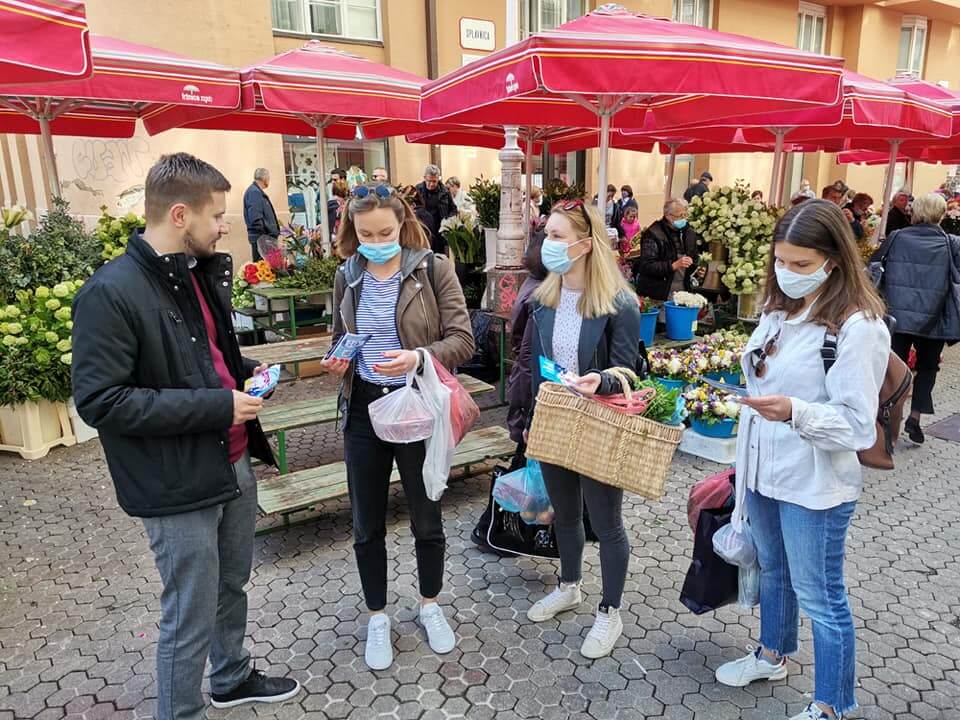
Davor Nađi during his campaign in Zagreb © Davor Nađi
You said on your Facebook site that you didn't receive enough media attention, and indeed you weren't invited to the debates (with the explanation being that only those who earned 5% in polls will be invited). However, you had banners and posters across Zagreb where you talked about how you are experienced to be a mayor because of Sveta Nedelja, where you were a deputy mayor, and the town did receive media attention few years back for amazing changes introduced there. What was your contribution to the transparency of public servants, lowering taxes, and canceling the subtax in Sveta Nedelja as deputy mayor?
I was the designer of those policies with the strong support of mayor Zurovec and the city council, and I was working on these policies from the beginning until the implementation. I’m very proud of that because Sveta Nedelja did the biggest tax cut in Croatia, became the most transparent city in Croatia, and received a reward for the best local economy three years in a row.
You criticized some of the moves by the new Zagreb mayor Tomislav Tomašević. Can you repeat what do you find problematic in his governance so far, but also, is there anything positive, something you would support him in if you made it to the Zagreb assembly?
There are some things that are good, and some are not. I reacted on one occasion, but let's wait a little bit more time before I can comment general impression so far.
However, for our readers who are foreign and didn't have the chance to see your comment in Croatian, can you briefly explain what did you found problematic with Tomašević early on to the point that you had to react publicly?
He stopped most of the public procurement. Even though I understand his concern that there might be corruption problems, that is not the way to solve that problem. That problem should be solved with better process and clear guidance from the mayor to the city administration because if public procurement is stopped for too long, there will be problems for citizens. On the other hand, in a short period of time new mayor will not be able to change much if he doesn’t make the process of public procurement more transparent and efficient.
Far from the US philosophy
Once on N1, you said political parties in Croatia are still pretty socialistic. Since on that occasion you were a guest at N1 regarding Zagreb Reconstruction Bill, did you mean they were socialistic just in that regard or in general? Are Croatians also socialistic too?
They are socialistic in general, and that bill was just the latest example. That orientation of political parties in Croatia resulted in a situation in which an enormous part of the economy depends on the state so we actually have crony capitalism. That sends the wrong message to the people, so people lose self-confidence and think they can’t earn for themselves and their families, and instead, they rely on the state to help them in every aspect of their life. They simply don’t take into account the fact that the state is corrupt and inefficient, which may be because of inadequate financial literacy.
However, it seems to me that the tide is changing with the lead from the local level from cites like Sveta Nedelja and that people are beginning to see the benefits of liberal policies.
When you say the parties are socialistic, some could think this is the heritage of Yugoslavia. However, aside from the communist experiences of South-Eastern Europe, the overall European political culture and tradition goes along the way „yes to democracy, yes to free market, yes to the individual freedoms“ but also „yes to social care, yes to free health, yes to free education, yes to supporting cultural and artistic projects, scientific research, etc“. Many people see Fokus as being against that and wanting to dismantle that European political culture with American political culture, which seems to be notorious in Europe for its health and education system, which as people see it, „is alright if you have cash, but not for the poor“. Are you indeed into „making Croatia American rather than European?“ and if so, how would you address the mentioned sectors of health, education, culture, and science? What about HRT in that context (as the idea of a public TV financed by the state is a European invention in the media landscape)?
Of course, we are not for an American-style economy. We prefer the Dutch or Scandinavian style with high economic freedom and adequate social benefits. Some people don’t understand that “free” health care doesn’t exist. Taxpayers pay for that. And if we think a little bit more about our health care system, do we really have health care that is accessible to the poor? How long are the waiting lists? People pay taxes for health care, and when they need it, then they don’t get it. That is not free health care! Almost the same is for everything else. I believe that vouchers would solve that problem because then even poor people could afford health care service from the private sector, and the public health care system would have to be more efficient and provide better value for money. The same thing is possible with education. HRT should be significantly downsized, and subscriptions decreased with the option to opt-out from their service.
When it comes to the overall Croatian political landscape, Fokus does offer something truly different from other political options, and it seems quite right to expect that Fokus will continue to grow. But, what do you think made Fokus uprise to start in central Croatia, in Sveta Nedelja, Samobor, Dugo Selo, and Sv. Ivan Zelina? Is there something that makes the culture and society in these areas different comparing to the rest of Croatia that they were the first to recognize and give a chance to your program?
Fokus also has a mayor of Pirovac in Dalmatia and president of the city council in Čakovec, members of City council in Slatina, etc, so I wouldn’t say that our policies are only recognized in central Croatia. However, we have better support in parts of Croatia, where fewer people work in the public sector and more in the private sector. That is not surprising since we promote policies that would result in a more efficient public sector and less red tape and taxation for the private sector.
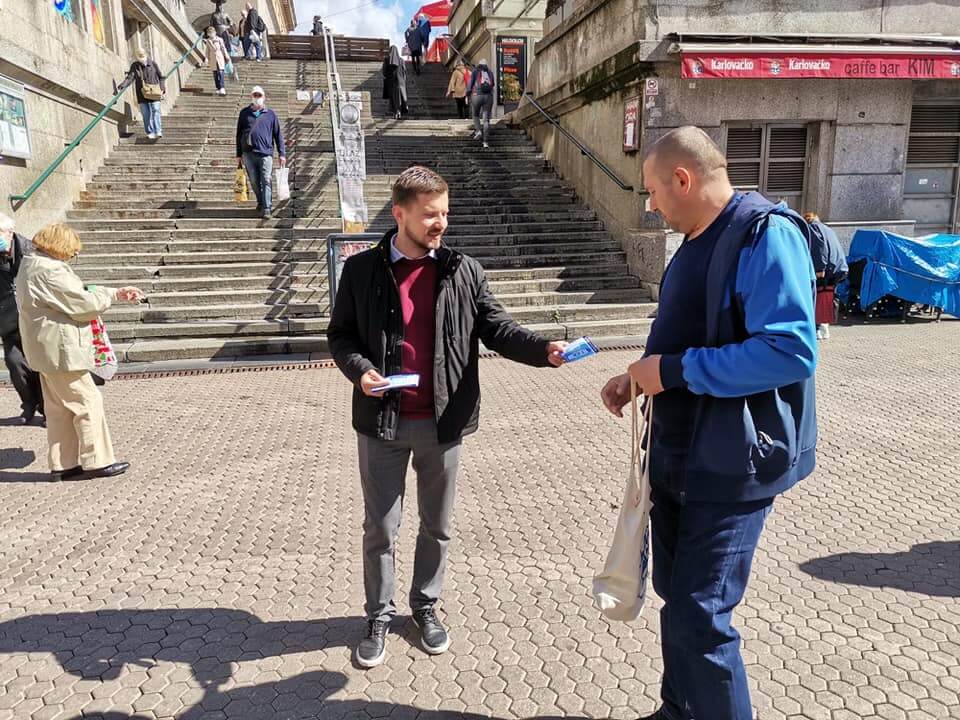 © Davor Nađi
© Davor Nađi
Up next: European elections and Croatian Parliament
On the note of local success, many view local elections as a forecast for what can happen in parliamentary elections. How would you rate your chances on the next parliament elections based on local results?
I’m very optimistic. Fokus has a very good position to grow and to achieve a great result. Fokus is already a success story and we have grown in a number of members in every part of Croatia. I believe that a new government after elections will not be formed without a strong party or coalition from the political center, and if we look at the results of local elections, Fokus is the fourth party by a number of mayors in Croatia. Also, we are the strongest party of the political center in national ratings, so that gives us reason to believe that we can gain even more support from our citizens in the future.
Back to the Zagreb elections. The two main candidates represented Gree-left values and national, conservative, sovereign values. Tomašević not only got support from some of the other European mayors but, just as with Škoro's values, there are plenty of same-minded people in Europe sharing those values. You mentioned your appreciation for the Dutch Prime Minister, but are you as well in contact with like-minded parties and politicians in the EU?
Fokus is a new party, so we still haven’t formed significant international alliances, but we can see ourselves working with other European liberal parties. Of course, the one with the best results is Dutch VVD that is in power on the state level.
But when we talk about the support that Tomašević or some right-wing parties and NGOs in Croatia had in recent years from abroad; I would say that there is a thin line between support and meddling into elections, and I would say that that line was crossed.
But, can we expect that Fokus will try to be in communication with them? Any plans for running on European Parliament elections as a good point to meet with other think-alike politicians in the EU?
I said that we don't have some significant alliances with them. However, we are in contact with some of them. We will see where that will take us. EP elections could be the first opportunity to test eventual cooperation.
And regarding what you said about there being a thin line between support and meddling in elections and how that line was crossed in Zagreb elections by NGOs, is there a risk of entrepreneurs doing the same thing when supporting, either financially or with public influence, certain parties? How can we prevent such meddling legally but yet with respect to the right of political expression to organizations and individuals?
I don’t see the financial support of Croatian entrepreneurs to political parties as a problem. The problem is only if they receive privileged treatment after the election in return for giving financial support. I would go one step further and say that we should welcome donations of private individuals and companies to political parties because that would mean that political parties would be less dependant on public financing. That should be a normal part of the domestic election process. However, if foreign money is included in financing political parties or their leaders, direct or through other channels, then we as a state have a problem.
To conclude, you are MA of the economy, and you talk a lot about economic solutions. Are our economy and business truly the core issues politicians need to address? Additionally, what are your views and the views of Fokus on defense policy, diplomacy, international relations, emigration policy (asylum seekers trying to enter Croatia), Croatian veterans, diaspora, and the ideological, historical disputes among Croatians, which for better or worse seem to often resolve the elections on a parliamentary level?
It would take a much longer conversation to answer all these questions, but I will try to answer in few sentences. Yes, I believe that economy is the most important issue that needs to be addressed because that is the place where value is created and which provides a better life for people and necessary funding for all government programs. Without a strong economy, the state can’t finance defense or social benefits. Unfortunately, you are right that elections are, in the biggest part, decided on other issues that target emotions rather than reason.
When it comes to defense policies, liberals believe that the basic tasks of the state are to provide to their citizen's rule of law and protection from foreign and domestic threats. So we should have adequate defense capabilities. On the other hand, we have no problem financing social benefits to real war veterans, however almost 30 years after the war, there shouldn’t be any new users of these benefits. Regarding international relations, our position is that Croatia should remain an EU and NATO member with strong relationships with the USA and with a clear position that China can’t be our partner until they don’t behave by the same rules like everyone else with the biggest concern regarding human rights issues.
Even though we are a small country, that doesn’t mean we can’t lead by example. It is up to us if we will stay on the bottom of every European statistic table or we will start going up. We have all the resources we need to thrive.
Learn more about Croatian politics and history since 1990 on our TC page.
For more about politics in Croatia, follow TCN's dedicated page.
SDP Candidate for Istria Prefect to File Constitutional Complaint After Slim-margin Defeat
ZAGREB, 6 June, 2021 - Danijel Ferić, the Social Democratic Party's (SDP) candidate for Istra County Prefect, who was defeated by Boris Miletić of the Istrian Democratic Party (IDS) by a slim margin of a few dozen votes, on Sunday announced a complaint against the State Electoral Commission's (DIP) decision.
The Constitution Court has a 48-hour deadline to respond to the objections to be lodged by Ferić and the SDP on Monday.
On Saturday, DIP affirmed the victory of IDS leader Boris Miletić in the election runoff on 30 May for the new Istria County prefect. During its hours-long session the commission partially upheld the objections made by Ferić and SDP observers on the count of the votes after last Sunday's election runoff.
As a result, Ferić, was given 17 more ballots, and Miletić three more ballots than they had after the count of votes immediately after the polling stations were closed. Thus, of 52,574 valid ballots Miletić and the candidate for his deputy, Tulio Demetlika, won 26,308, while Ferić and his deputy Antonella Degrassi mustered 26,268 ballots, or 40 fewer ballots. There were 2,056 invalid ballots or 3.76%.
Ferić told a news conference in Pula today that the constitutional complaint would refer to the DIP's refusal of the SDP request to check the allegations that people who actually had not been in the town of Labin during the election runoff being were registered voters who exercised their right on that day.
Ferić insists that the election runoff for the Istria County prefect were contaminated and particularly in the towns where the IDS was in power: for instance, Pula, Labin, Rovinj and Pazin.
For more on politics in Croatia, follow TCN's dedicated page.
For more about Croatia, CLICK HERE.
Highlights of the Week: 5 Big Events in Croatia from May 31- June 6, 2021
June 6, 2021 - TCN's highlights of the week. A look at the events in Croatia from May 31 through the selection of TCN's reporter Ivor Kruljac.
From significant political changes after the local elections to the losses and preparations in sport, the week was hyped by a strive for hope in Croatia. But, the tragic murder of Nino Čengić in Varaždin was a painful kick to the stomach. Here is another weekly selection of the news depicting the bittersweet life in Croatia.
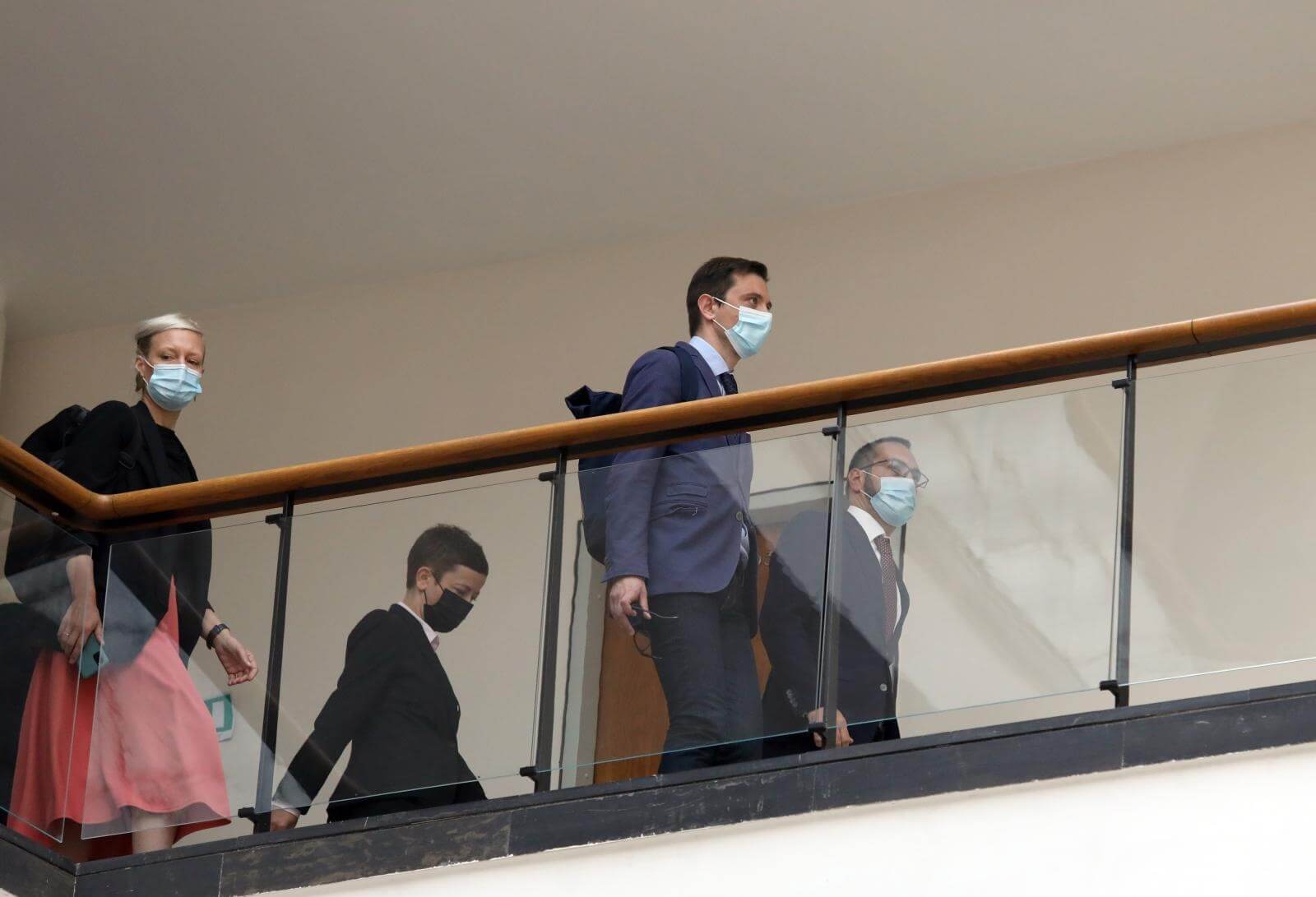
© Patrik Macek / PIXSELL
Highlights of the week: Tomislav Tomašević officially. becomes the new mayor of Zagreb
Zagreb local elections winner Tomislav Tomašević met with Jelena Pavičić Vukičević for an official ceremony of transferring power on Friday, which makes Tomašević officially the new mayor of Zagreb.
Media attention was also caught for the fact that Tomašević was four minutes late to the ceremony because he was waiting for the ambulance on Cibona because a woman fell ill in the middle of the street. But, for the bigger public interest, it's important to note today was the first time for Tomašević to have a detailed view on the financial situation of the City of Zagreb, giving him a clear picture of the debt problem Zagreb has.
As TCN reported earlier, Tomašević told the press after the ceremony that the situation is not good, but there are solutions. Still, so far, no more details were given on the two-thousand-odd-page reports on the 2020 budget execution and preliminary figures. Additionally, the new city assembly would hold the founding meeting on 17 June.
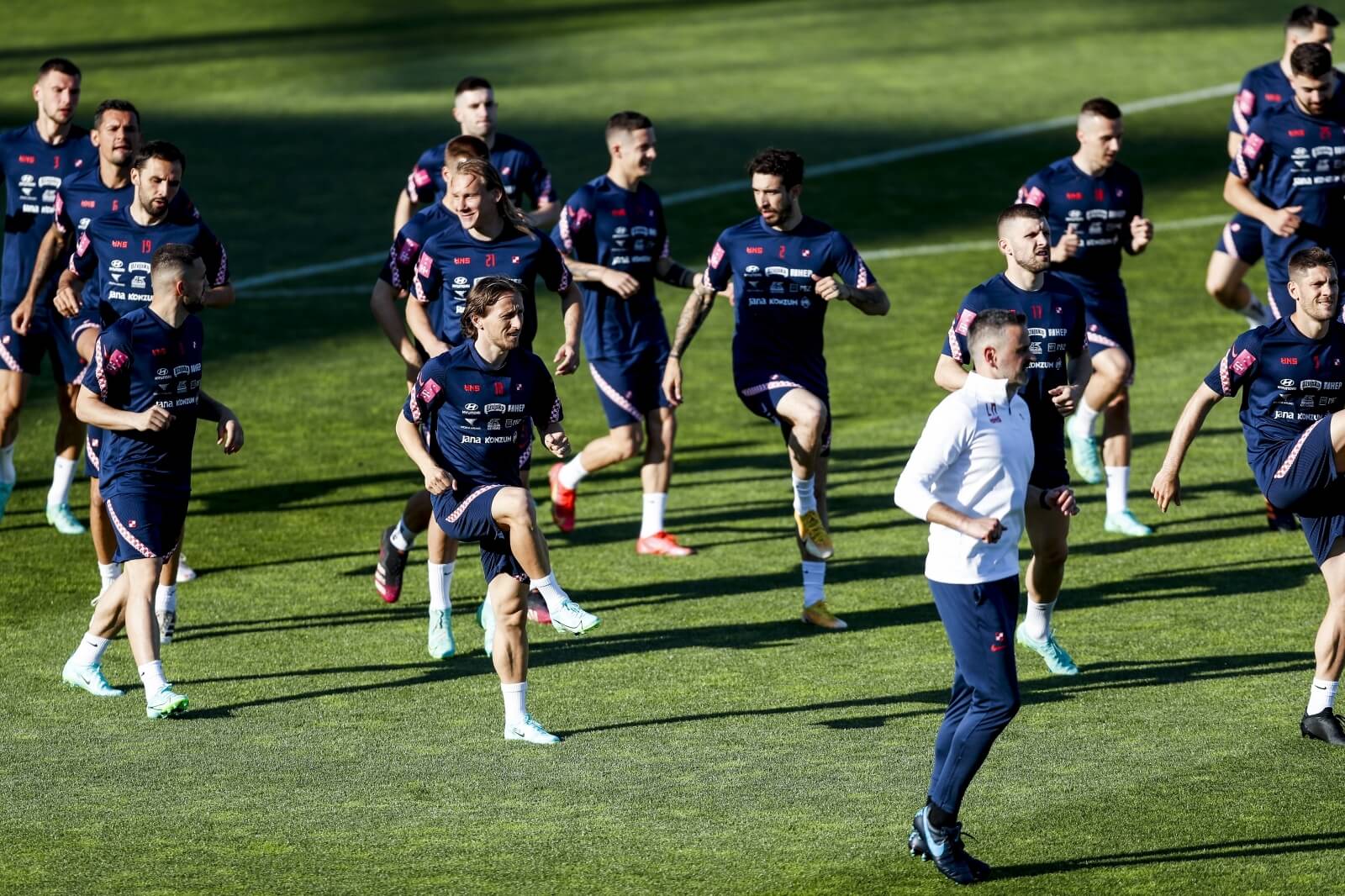
© Slavko Midzor / PIXSELL
Highlights of the week: Zlatko Dalić on Croatian National Football Team
The Croatian National Football Team is preparing for the friendly clash with Belgium. As reported by TCN, Zlatko Dalić faced the press on Friday ahead of the match.
„I am satisfied with everything except the result. We had minor injury problems. We did the rest as expected, but the draw with Armenia left a bitter taste. In that game, we had to win 4-0 or 5-0, not draw 1-1. I am dissatisfied with this result. Plus, we created 5-6 percent chances, and we didn't do that in three games in a row at the beginning of the World Cup qualifiers against Slovenia, Cyprus, and Malta. We were nonchalant and irresponsible and did not realize them. We were not specific, and that is a minus“, said Dalić to the press.
Dalić also pointed out that the national team is aware of its obligation to the Croatian people. He spoke about the problems in the national team, the pros and cons of the draw against Armenia, and the expectations from players who are dissatisfied with their status. One of them is Andrej Kramarić, who, after 20 goals scored in the Bundesliga this season, is not safe among Dalić's starters. A few days ago, he advised the media to ask Davor Šuker what he would say after such a season.
Expectionsare big ahead of the EURO championship, and no doubt fans will pay attention with close interest.
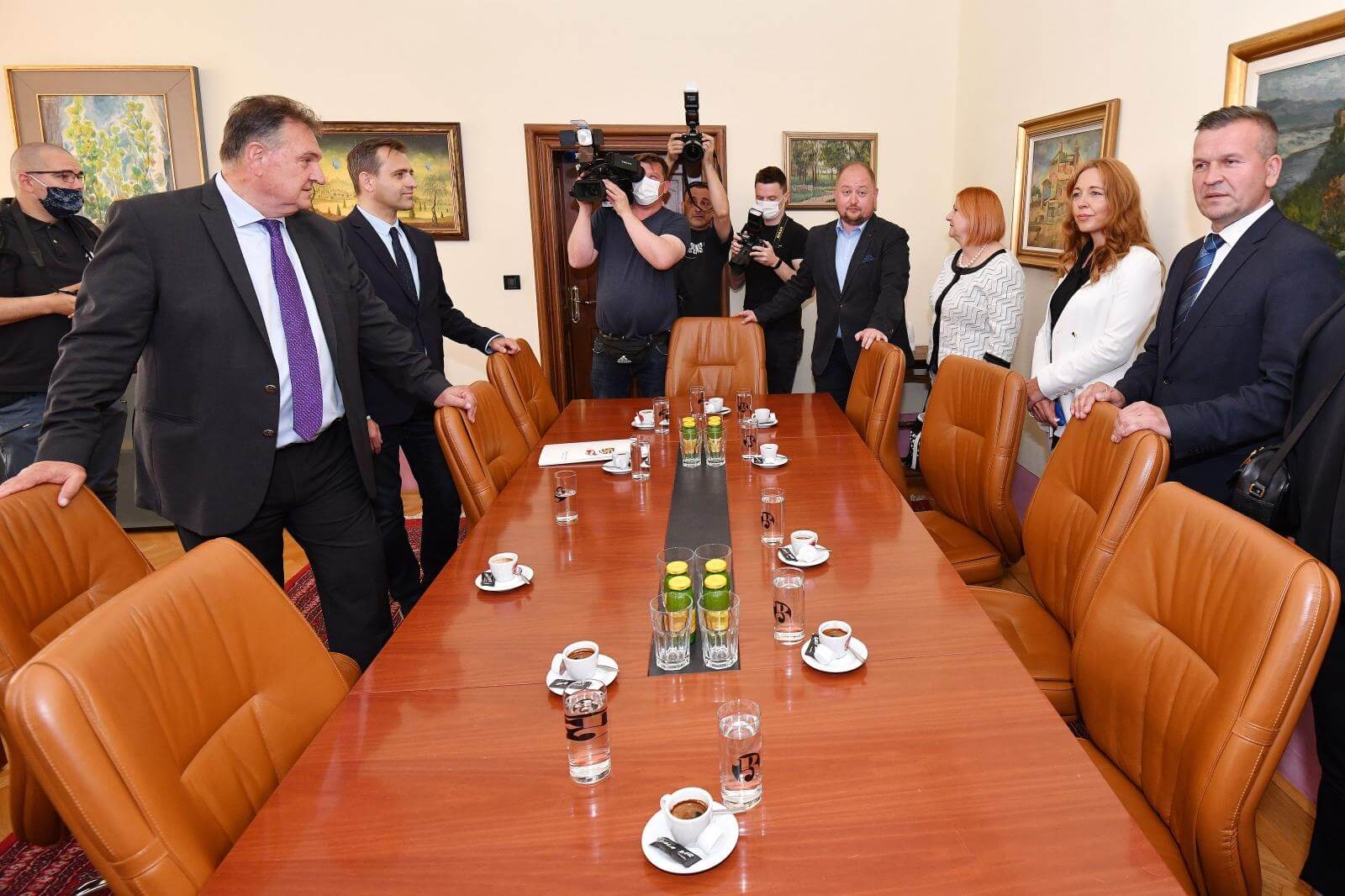
© Vjeran Zganec Rogulja / PIXSELL
Highlights of the week: Anđelko Stričak, new prefect
The power transfer ceremony on Friday also took place in Varaždin where Anđelko Stričak defeated current Varaždin prefect Radimir Čačić.
„The victory is well deserved. In the past nine years as the president of Varaždin county organization of the Croatian Democratic Union (HDZ), and in six years as a member of the parliament, I've been to every corner of Varaždin county and talked to everybody. I heard the needs of our citizens, and I tried to solve them by cooperating with coalition partners on every level. Of course, I'm not the best, most capable or most perfect, but I will try with my team to give my best that everybody in the county feel changes for the better“, said the new Varaždin County prefect Stričak, as reported by Varaždin county's official website.
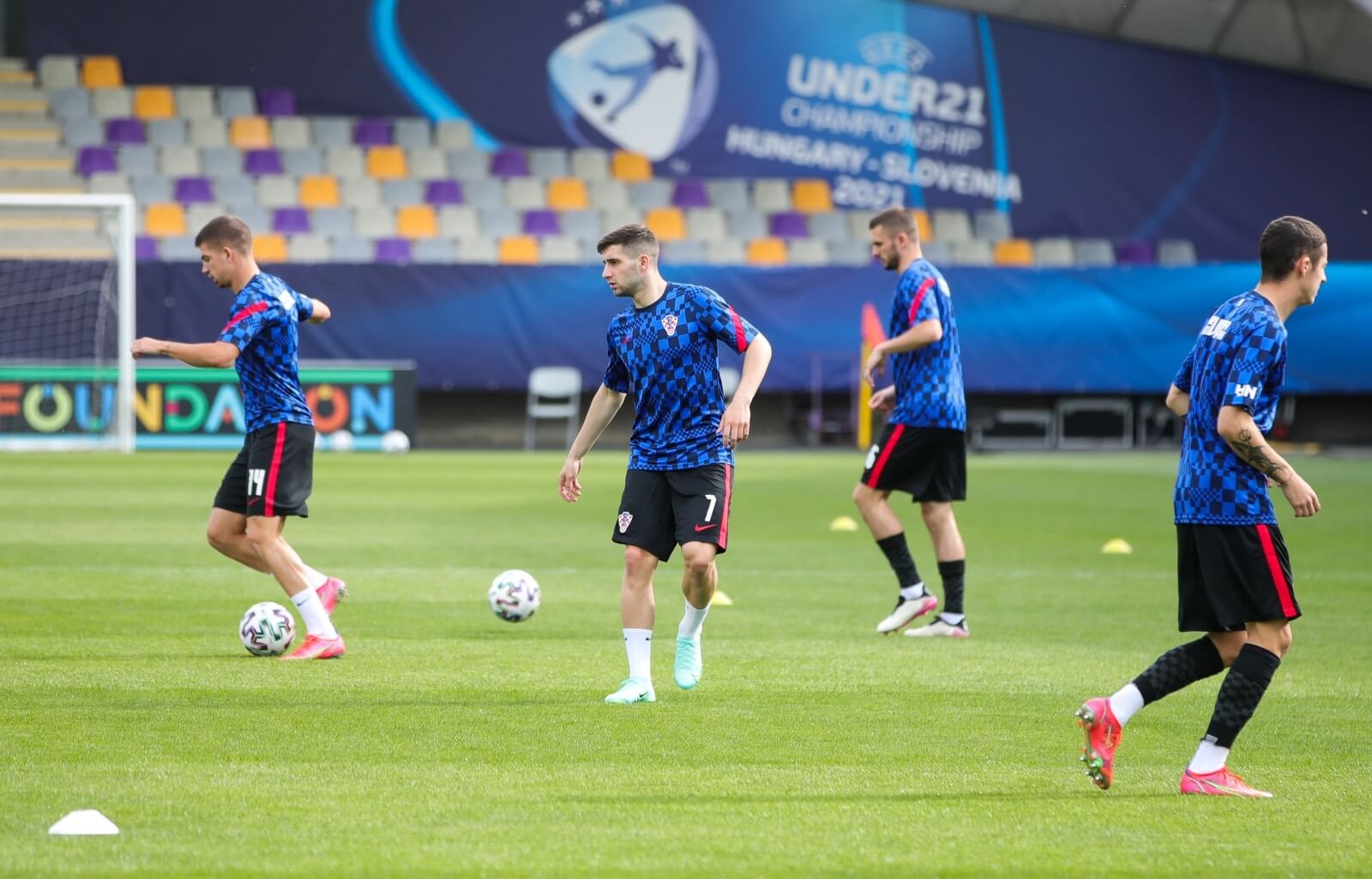
© Sanjin Strukic / PIXSELL
Highlights of the week: Croatia Loses to Spain in the Under-21 European Championship
Spain was better than Croatia after extra time in the Under-21 European Championship quarter-final in Maribor on Monday. The match ended 2:1. As reported by TCN, Croatia was solid in the first half and threatened the Spain goal on a few occasions. Despite Spain's high pressure, Ivanušec had a chance from 20 meters in the 7th minute, and in the 23rd, Bradarić's shot was blocked by the Spain defense. Spain retaliated with a Diaz shot from 20 meters, but Croatia's defense made it difficult for them to do much more.
The young Croatia national team fought against Spain for a spot in the semifinals.
Igor Bišćan's side met Spain at Ljudski Vrt stadium in Maribor.
"The guys are aware that we have a great chance, they are motivated to do something, and we are all around them to give them that chance and be supportive. They have quality," Bišćan announced before the match. 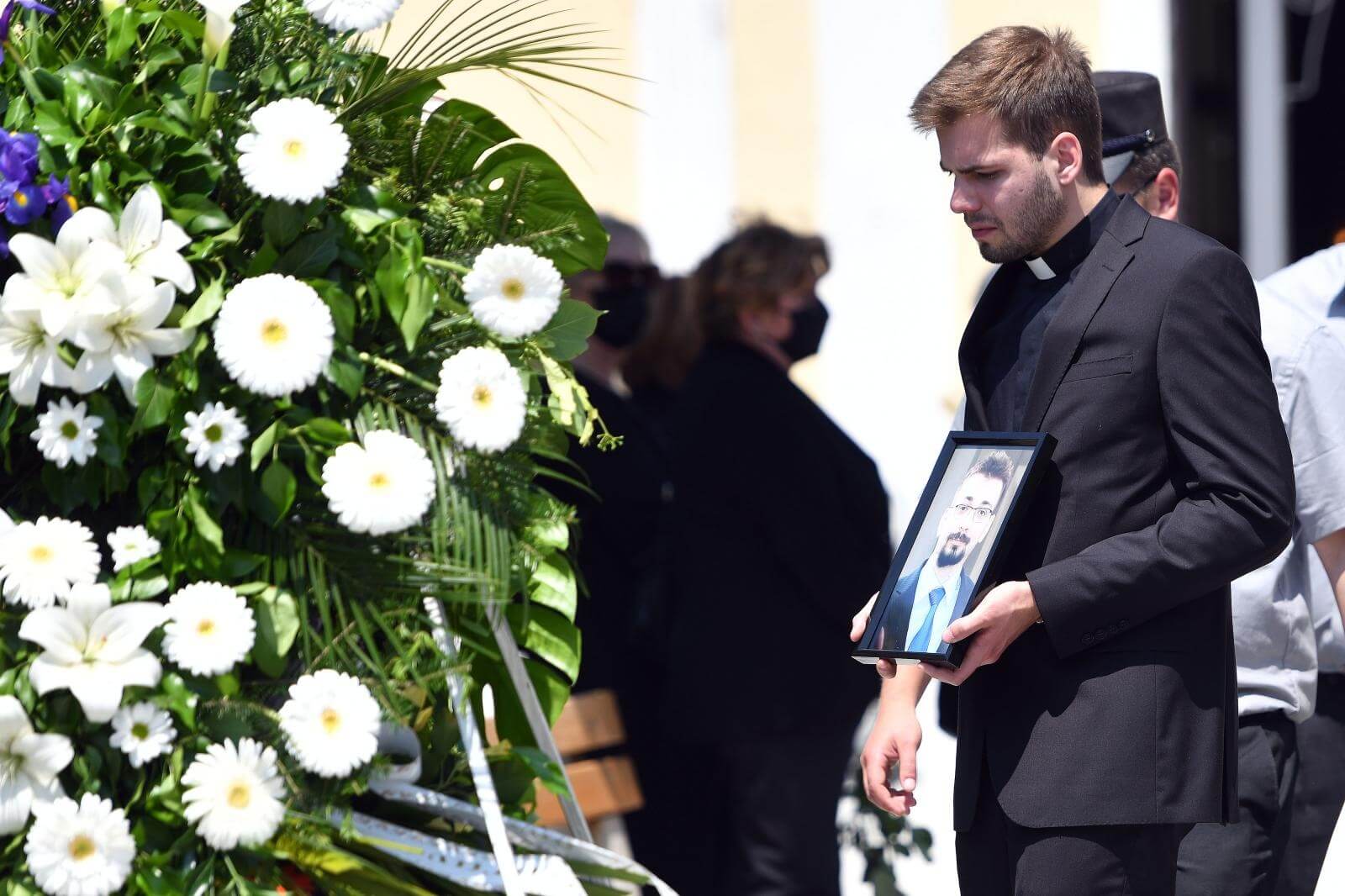
© Vjeran Zganec Rogulja/ PIXSELL
Highlights of the week: Nino Čengić funeral in Varaždin
The Funeral of the English professor Nino Čengić who passed away last Sunday, was held on Wednesday. Nino Gengić, a substitute English professor in one Varaždin school, was brutally beaten with bats and chains in front of the local club in Varaždin called Kulturana. He was 35 years old.
As Jutarnji List reports, four suspects aged 24-29 are currently in custody while the investigation is ongoing as to what lead to this attack. Suspect's apartments were searched, and one suspect illegally possessed a considerable amount of ammo and fire weapons to match. All suspects were previously known to the police for troubling behavior, and the most tragic was the fact that 15 people witnessed the beating, but nobody stopped it.
To learn more about Croatia, have a look at our TC website.
For more about news in Croatia, follow TCN's dedicated page.
Several Cities and Counties Get New Heads After Predecessors' Long Terms
ZAGREB, 4 June 2021 - Following Croatia's local election runoffs on 30 May, several long-standing county prefects and mayors were unseated while some decided not to rerun, and on Friday transfers of powers were held in those units of local government and some other cities and county seats.
Apart from the focus on the change of power in Zagreb, where the new mayor Tomislav Tomašević of the Green-Left bloc took over office from the acting mayor Jelena Pavičić Vukičević, who temporarily stepped into office after the death of Mayor Milan Bandić on 28 February, the transfer of powers in Pula, Osijek, Sibenik-Knin and Varaždin counties also grabbed media attention.
Pula
In the biggest Istrian city of Pula, the Istrian Democratic Party (IDS) lost the mayoral elections for the first time. The former mayor, IDS leader Boris Miletić, decided not to rerun for this position after his 15-year-long mayorship. However, he vied in the race for County Prefect which he won by a slim margin.
The IDS mayoral candidate was defeated by Filip Zoričić, an independent candidate, who took over the post on Friday morning. Concerning the city council, the IDS was a relative winner, with 32% of the vote, and Zoričić's slate won 16.87%, and was followed by the We Can slate (16.84%) and the Social Democratic Party (15%). Currently Zoričić and the two latter groups are conducting negotiations on the future majority in the city's legislature. The deadline for the founding session of the Pula city council is 19 June.
Čakovec
The new mayor of Čakovec, Ljerka Cividini, took over the powers from the SDP mayor Stjepan Kovač, who was at the helm of the city since 2013. Cividini said today that concrete projects would be on the agenda after the new authorities got full insight into the finances of this biggest city in Međimurje County, which re-elected Matija Posavec as its county prefect.
Cividini, supported by Posavec's slate, as well as by several parties including the HNS, Democrats, HSLS and HDSS, said today that as far as the future majority in the 19-seat city council was concerned, the topic was being negotiated by her slate, that won 8 seats, with the Fokus party, that had three seats.
Varaždin County
The change of powers in the office of the Varaždin Prefect was highlighted by media as a development that could impact the relations in the ruling majority in the national parliament. Former county prefect Radimir Čačić of the Reformists party, a junior partner in the ruling coalition, was unseated by Croatian Democratic Union (HDZ) official Anđelko Stričak.
Upon the transfer of powers, Stričak today announced negotiations on forming the majority in the county assembly in which the HDZ will have the largest number of seats, and is followed by the Reformists.
Šibenik-Knin County
The new prefect in Šibenik-Knin County, Marko Jelić, who was the mayor of Knin in the previous term, stepped into office at today's formal ceremony. Jelić, who ran as an independent candidate, unseated the former county prefect, Goran Pauk of the HDZ, who had run the county for 15 years.
However, the county assembly will have the largest number of HDZ councillors, as this party won 35% of the vote, the independent list of Stipe Petrina followed with 16.6% of the vote, and Jelić's slate was third with 15.6%.
Lika-Senj County
The transfer of powers was also held in Gospić, with Ernest Petry of the HDZ party succeeding Darko Milinović, who founded a new regional party after his conflict with the HDZ leadership a few years ago.
For more on politics in Croatia, follow TCN's dedicated politics page.
SDP Candidate Filipović Winner of Runoff for Rijeka Mayor
ZAGREB, 30 May, 2021 - Marko Filipović of the Social Democratic Party (SDP) will be Rijeka mayor for the next four years, according to first unofficial results of the runoff.
With ballots from 94% of polling stations counted, the candidate of the SDP-HSU-IDS-HSS coalition won about 55% of the vote, while his opponent, independent candidate Davor Štimac, received 45%.
Filipović expressed his satisfaction with the results and said that "Rijeka has proved that social democracy lives in Rijeka, that it has lived and that it will live for the next four years".
Asked whether he offered any changes compared to his predecessor, he said that "this is definitely a change".
"I am Marko Filipović, I thank Vojko Obersnel for 21 years of defending social democratic values in Rijeka."
He said that among the first projects to be implemented include the construction of two new kindergartens, 1,000 new flats and opening Rijeka towards the sea.
Asked about forming a majority in the city council, he said that talks were under way and that he was sure a majority would be formed in the coming weeks.
He thanked everyone who voted and congratulated his opponent on his result.
For more on politics in Croatia, follow TCN's dedicated page.
For more about Croatia, CLICK HERE.
Jandroković: HDZ Winner in 15 Counties
ZAGREB, 30 May, 2021 - Parliament Speaker Gordan Jandroković of the Croatian Democratic Union (HDZ) on Sunday evening said that the HDZ won the elections in 15 out of the 20 counties.
After the State Election Commission (DIP) started publishing incomplete results after the second round of the local elections, Jandroković said that the outcome of both rounds of the elections showed that the HDZ had county prefects in 15 counties.
He expressed satisfaction with the results showing that the HDZ candidates for county prefects defeated the incumbents in Varaždin and Bjelovar Counties as well as in Lika County.
He elaborated that the HDZ won the elections for the prefects of all the five counties in the eastern Croatian area of Slavonia.
Jandroković conceded the defeat of the HDZ incumbent county prefect in Šibenik-Knin County.
For more on politics in Croatia, follow TCN's dedicated page.
For more about Croatia, CLICK HERE.
Preliminary Results: Tomašević, Puljak, Filipović in Lead, Radic New Osijek Mayor
ZAGREB, 30 May, 2021 - According to preliminary election results released by the State Election Commission (DIP) at 8.20 pm on Sunday, Tomislav Tomašević is in the lead in the race for Zagreb mayor, Marko Filipović is leading in Rijeka and Ivica Puljak in Split, while Ivan Radić has won the elections in Osijek.
After ballots from 67% of the polling stations in Zagreb were counted, Tomašević, the candidate of the We Can!, Zagreb is Ours, New Left, Orah and For the City parties is leading convincingly, with 66.9% of the vote, ahead of his rival Miroslav Škoro of the Homeland Movement, who has won 33.1% of the vote.
In Split, Ivica Puljak of the Centre party is in the lead with 60.2% of the vote, while Vice Mihanović of the Croatian Democratic Union (HDZ) has 39.7% of the vote.
Current Rijeka deputy mayor Marko Filipović, the candidate of the Social Democratic Party, Croatian Pensioners' Party, Istrian Democratic Party and Croatian Peasant Party, is in the lead with 55.1% of the vote, followed by independent candidate Davor Štimac, with 44.8% of the vote.
In Osijek, Ivan Radić of the HDZ party has won 62.6% of the vote after all ballots were counted, while independent candidate Berislav Mlinarević, backed by the Homeland Movement and Bridge, has won 37.3% of the vote.
For more on politics in Croatia, follow TCN's dedicated page.
For more news about Croatia, CLICK HERE.
DIP Incomplete Results: Incumbents in Lead in Vukovar, Dubrovnik, Sisak, Zadar
ZAGREB, 30 May, 2021 - According to first results released by the State Electoral Commission (DIP) at 8 p.m., the current mayors in several cities took the lead in the mayoral runoff on Sunday.
Thus, independent candidate Ivan Penava was in the lead ahead of Nikola Mažar of the Croatian Democratic Union (HDZ) , with 4,542 to 3,982 votes.
In Varaždin, Neven Bosilj of the Social Democratic Party (SDP) was ahead of the current mayor, independent candidate Ivan Čehok.
The current mayor of Dubrovnik, HDZ's Mate Franković, was also in the lead ahead of Pero Vićan of the Dubrovnik Democratic Assembly (DDS).
In Sisak, the incumbent Kristina Ikić Baniček of the SDP won 3,597 votes while HDZ's Željka Josić took 3,540 votes, according to incomplete results.
In Zadar, the incumbent Branko Dukić (HDZ, HSP, SU, Reformists) was ahead of Marko Vučetić (SDP, AM, HSS, Glas, Centre).
In Pula, Helena Puh Belci of the Istrian Democratic Party (IDS) took the lead ahead of independent candidate Filip Zoričić.
For more about politics in Croatia, follow TCN's dedicated page.
For more news about Croatia, CLICK HERE.
Zagreb Local Elections 2021 Analysis: No "Ideological Referendums", Strictly Freedom And Solutions Wanted
May 30, 2021 - Following the turbulent public debate of the Zagreb mayor candidates that ended with Tomislav Tomašević winning the capital of Croatia, TCN reporter Ivor Kruljac brings you the Zagreb Local Elections 2021 Analysis, concluding that Zagreb is a city open for all ideologies but in constant search of quality solutions.
It's official – Tomislav Tomašević (seen on the lead image) is the new mayor of Zagreb, the 54th in a row when you look through Zagreb's history.
As a brand new chapter in Zagreb's local politics is turned, many are still uncertain about whether the former mayor Milan Bandić would lose or win another mandate if he hadn't suddenly and prematurely passed away earlier this year. Still, as Jelena Pavičić Vukićević, Bandić's successor joined the mayoral race and came in third place (despite being perceived as the keeper of Bandić's tradition), we could argue that is the indication that Bandić being suspected of corruption (and taken to court on several occasions) could've been the political end for him, had he lived to see the fight. But, of course, given Bandić's strong personality, that indication needs to be taken with a grain of salt, as many believe that not only would Bandić get to the second round of elections - but he'd even win them.
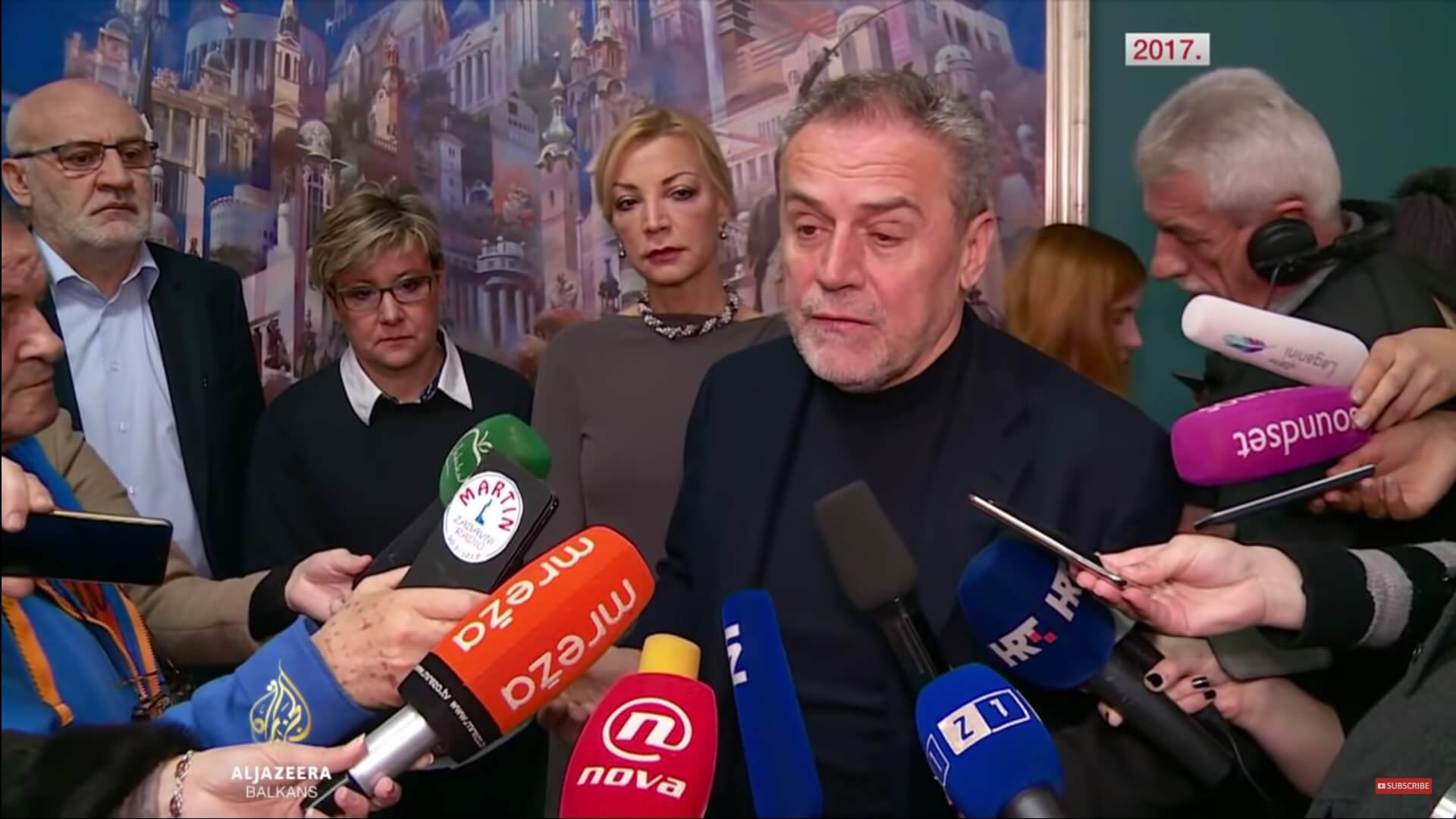
Former Zagreb mayor Milan Bandić, screenshot / Al Jazeera Balkans
A quick recap
In the first round, Tomislav Tomašević from the green-left platform We Can! (Mozemo!) earned a stunning 45,15 percent (147,631) votes. Not only was that twice as more than Škoro and Pavičić Vukičević combined, as N1 reported, but it was also more than with what Milan Bandić won in the second round of local elections back in 2017.
The mayoral race in Zagreb was highlighted with the question of who will succeed Milan Bandić and who will properly address all the debts and unfairly earned employment in the city administration as well as the overpricing of numerous city projects (such as the many fountains and the plagued Sljeme cable car). Additionally, there were the issues of the handling the mess of the Jakuševec junkyard, as well as handling the post-earthquake reconstruction of Zagreb's very heart. The only thing the majority of the candidates agreed to be good were the city's social policies, but they can still be improved.
However, as TCN previously reported, before even officially entering the second round, Miroslav Škoro turned the elections from practical questions of handling corruption to the age old and frankly boring ideological battle, accusing Tomašević and the We Can! (Mozemo!) platform of wanting to revive Yugoslavia.
''That's the extreme left, and it will be stopped in the second round, so help me God“, said Škoro on the night of the first election results.
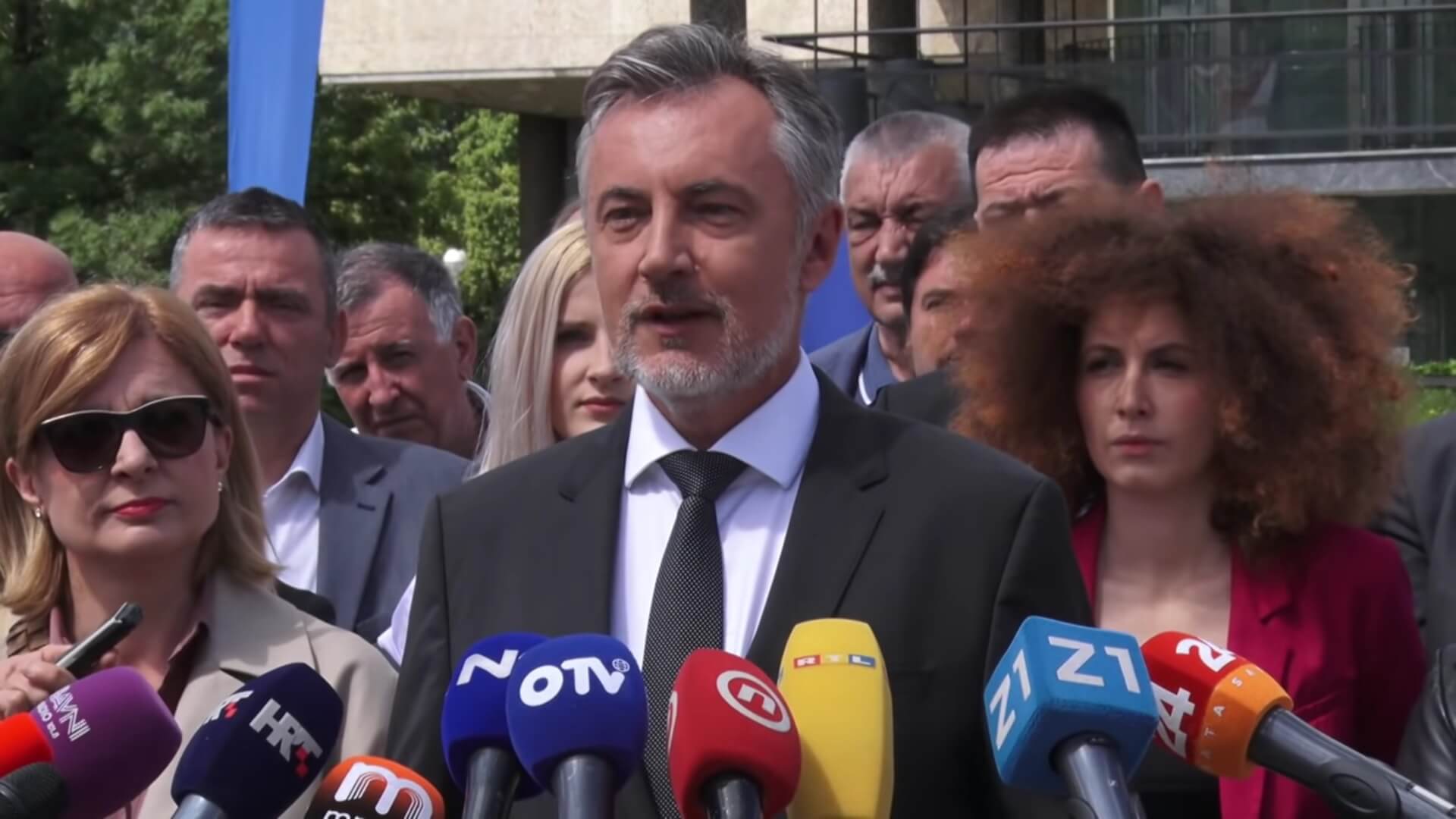
Miroslav Škoro, screenshot / Domovinski Pokret
This sort of rhetoric took everyone by surprise. Dražen Lalić, a sociologist and a professor at the Faculty of Political Sciences at the University of Zagreb, commented for RTL that Škoro himself is a radical candidate and that We Can! (Mozemo!) are neither extreme nor are they the radical left.
''Regardless of Škoro having a doctorate in economis, he's illiterate in the political sense; he doesn't know even the most basic terms. Extreme means outside of the system and not going to the elections. Radical actors are inside the system, and I think Škoro is radical. On the other hand, Tomašević and We Can! (Mozemo!) are very moderate in their attitudes; they're young people. There were no incidents and they are were moderate,'' said Lalić for RTL. He added that Škoro is probably aware that he had absolutely chance of winning but was still trying to reach the far-right electoral body.
24sata columnist Tomislav Klauški wrote about how Škoro's war with the perceived ''extreme left'' is quite literally the only thing in his entire programme. He concluded that such a move isn't going to work for Zagreb, which has never voted for far right options, and he also reminded that former mayor Milan Bandić, despite his many flaws, also came from the social-democratic political option.
''His filthy campaign from the first round, where his agency spread lies that Škare Ožbolt works ''for the Serbs'', where his news sites spread stories that Filipović's father is Serbian, and warned that Tomašević is a concealed right-winger, Škoro is now going further with that into the second wrong. As if Zagreb doesn't have enough problems to talk about,'' wrote Klauški on Monday after the first round.
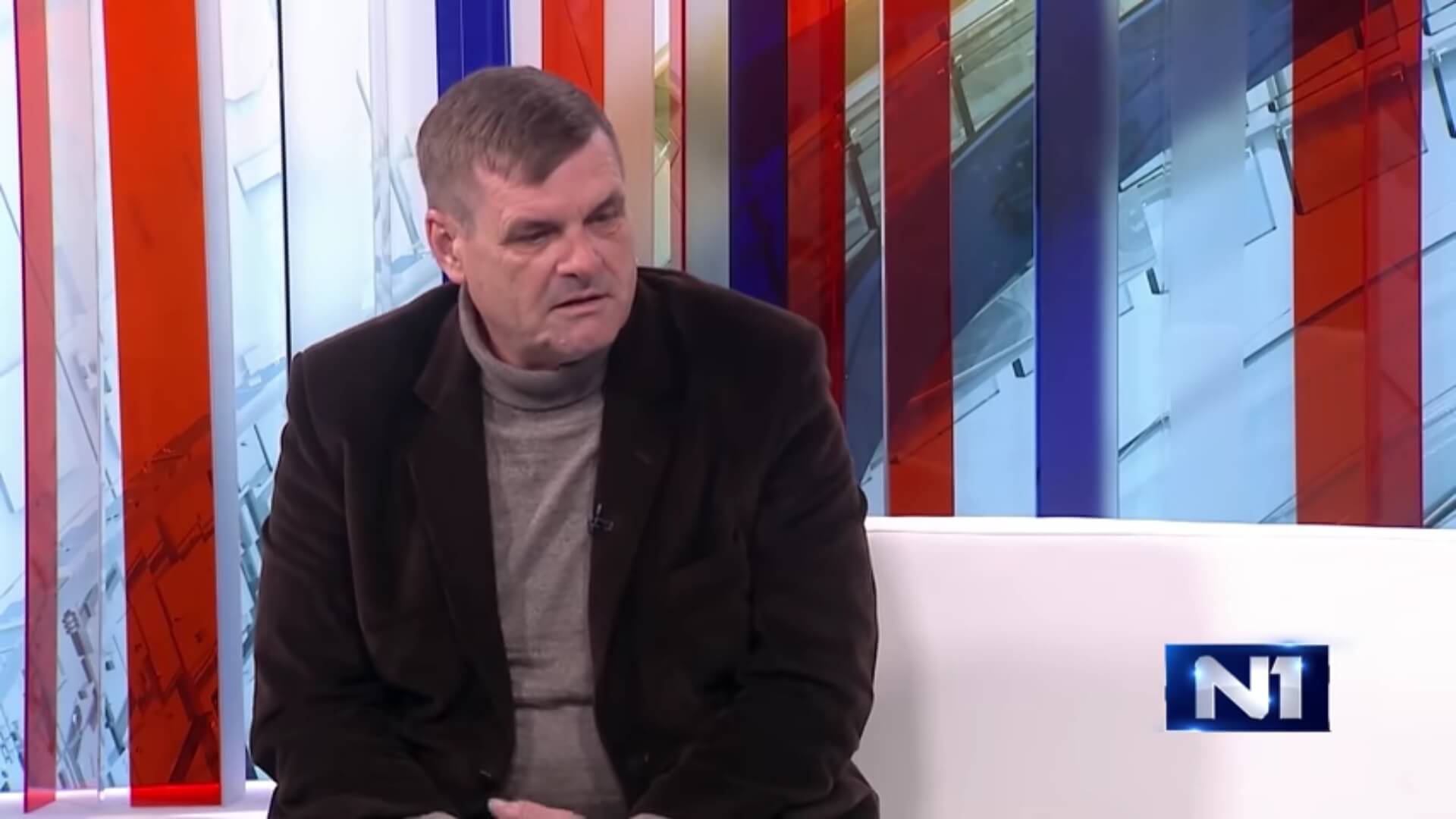
Dražen Lalić, screenshot / N1
Škoro then continued to push the narrative of these elections, declaring them an ideological referendum among right-wing and conservative circles. Škoro also accused We Can! (Mozemo!) of being foreign mercenaries working for famous philanthropist George Soros or wanting to revitalise Yugoslavia, and Škoro's associate Zlatko Hasanbegović stepped out into the Croatian public space calling the party a lesbian syndicate - weird indeed. Additionally, Nikola Grmoja (Most) stated for N1 that Mozemo are iPhone Soroshians, and accusations accompanied by rather odd name-calling saw a random generator on the internet designed to mock these terms by random options. Meanwhile, Tomašević continued his campaign by talking about solutions to the problems Zagreb is currently facing but occasionally making remarks on the accusations by his opponents and sometimes even throwing some accusations in Škoro's direction in return.
67% : 33% K.O.
This focus on actual problems Zagreb is facing and the refusal to dwell into ideological issues, along with the experience of activism for Zagreb's interests, proved to be the winning formula for Tomašević, beating Škoro with amazing 199,630 votes compared to Škoro's 106.300 votes. Not only did Tomašević beat Škoro by far, he also earned more than former mayor Milan Bandić did, and nobody has had more votes in Zagreb's mayoral elections to date.
Škoro lost his own so-called ideological referendum, but let's imagine for a moment that he actually won. Whether Škoro (or some other analysts who believed these elections would finally prove how Zagreb looks at things with an ideological eye) likes it or not, this "referendum" neither proves that Zagreb has turned to some radical left nor does it prove the opposite. First of all, only 45.7% of people voted on the second round of these elections. That's not even half of the total number of citizens that have the right to vote in Zagreb. Secondly, the culture and overall vibe of Zagreb truly tells us that Zagreb is diverse and very much open for everybody.
Zagreb - The pioneer liberal city for every idea
One thing we can say for certain about Zagreb's philosophy, if you will, is that Zagreb is proud to be a pioneer of development and a role model for the rest of the country. To illustrate that, Zagreb was proud that they'd be the first to use telecom lines, and by the time the rest of Croatia got telephones, Zagreb already had mobile phones. Being the capital city of Croatia, and the biggest city in the country, a centre of politics, education, science, culture, and more, Zagreb attracts people from all over the country and abroad, having bloomed into a multi-cultural city whose people have various ideologies and convictions.
When you look at ideological conflict in Croatia, which sadly doesn't seem to be anywhere near its end, it is often perceived that if you're a Croatian nationalist and conservative in Istria, you'll feel quite lonely indeed. On the other hand, left leaning progressives and liberals living in Dalmatia or Slavonia, areas that are known to be quite conservative, can't wait for a chance to leave those areas.
That being said, apologetics of all ideologies head to Zagreb, and Zagreb is a place where looking straightly from an ideological view, everyone is equally happy and miserable at the same time, but overall they're in a better position than in the rest of Croatia is. Before the pandemic, you had a regular event called ''Coffee with non-believers'' hosted by various venues such as Spunk bar or No Sikiriki. The event allowed for all atheists, agnostics, or even religious people unhappy with the breach of secularity by the Catholic Church in Croatia – to find those who think like they do, meet in person, talk, and have a good time.
On the other hand, in the Veliki Tolk pub in Opatovina, you have ''Right-wingers in the Pub'' which provides the same comfort and good times for the conservative-oriented people.
Regardless of what kind of genre of music you listen to, what movies you want to see, what kind of clubs you want to go to, mainstream pop, alternative rock, electronics, jazz... Zagreb's public sphere offers something for everyone.
Zagreb does have hospitals whose doctors refuse to perform abortions, but if there is any place a woman can have her reproductive rights respected in Croatia, then that place is Zagreb. Despite several violent homophobic incidents, the relaxing atmosphere of the LGBTQ Pride picnic on Ribnjak Park, and the support coming for the parade from the windows of Zagreb's buildings show that Zagreb is a safe place, and you won't feel alone because of your sexual preferences.
How these ideologies co-exist in being equally happy and miserable at the same time was perfectly demonstrated over the last two weeks. LGBTQ flags put out for the International Day Against Transphobia were torn down by vandals on the Victims of Fascism Square. A few days later, a pro-life initiative, Hod za Život“ (Walk for life) flags displayed on Ban Jelačić Square, were also quite quickly torn down. And the culmination of that event was seen on Saturday when the pro-life Walk For Life march was met with counter-protesters from Crveni Otpor (Red Resistance), which is pro-choice. So, as we can see, these ideologies create conflict at times, but more often, it's a peaceful co-existence. Equally miserable and happy at the same time, and still in a better position than the rest of the country.
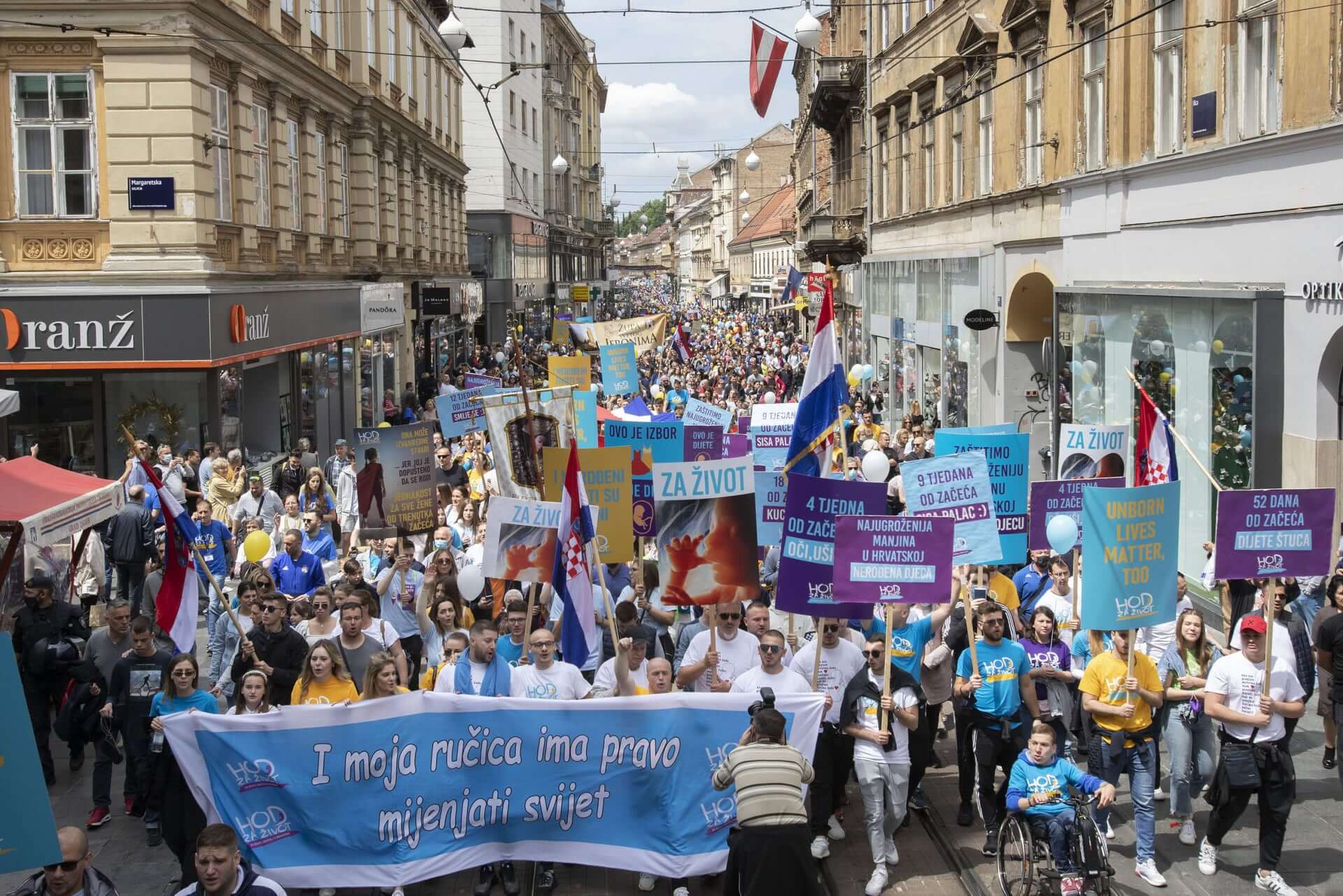
Pro-life march in Zagreb © Hod za život - Zagreb
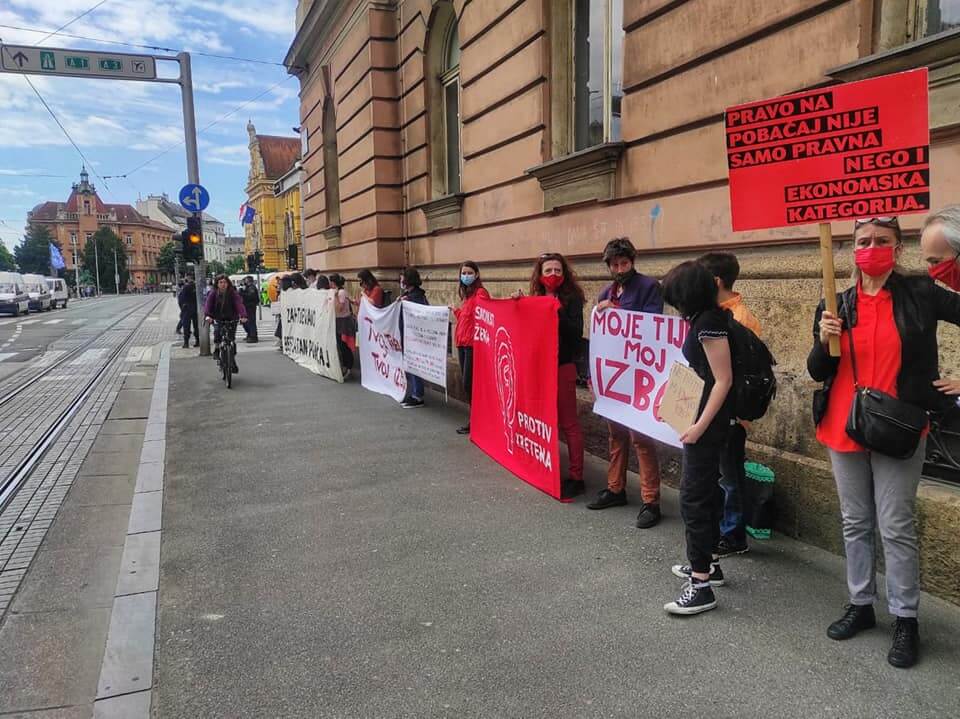
Pro-choice protesters waiting for pro-life march in Zagreb © Faktiv
Zagreb is liberal in its nature, courtesy of the growth and development it has seen, and even in the event that a conservative or even a radical conservative ever took the mayoral position, Zagreb wouldn't lose what it is in its soul.
Those who vote in Zagreb proved that ideological disputes are irrelevant, as long as freedom is respected by the candidate, and as long as you are not a radical and have a good solution for the city's problems, you're more than welcome to try and be a mayor.
Democracy is yet to be understood
That being said, there are some issues these elections highlighted for the political culture of Zagreb. First, Zagreb citizens that don't vote need to understand that voting is very important as our democratic right to have our say in what we want in Zagreb (as in the entire country). The freedom and all of the perks of living in Zagreb that citizens enjoy or don't enjoy are the direct results of politics, and any improvements or downfall in the city will come from politics. Having your say in these dynamic events is something that shouldn't be missed.
Democracy isn't a once-every-four-year event but a continuous practice of civic participation to make sure that promises before the election don't end up forgotten after the celebration.
Tomašević has said that "Zagreb is ours" (as is the name of one of the political parties in the Mozemo! platform), and so it's important for him to be open for the city's citizens, but also for citizens to be open to communicate with the local authorities to make a better community.
Learn more about Zagreb on our TC page.
For more about politics in Croatia, follow TCN's dedicated page.
Exit Poll: Tomašević Wins Zagreb, Puljak Split, Radić Osijek, Filipović Rijeka
ZAGREB, 30 May, 2021 - Exit polls after Sunday's runoff polls in the biggest cities show that Zagreb will be run by Tomislav Tomašević of the Green-Left Coalition, Osijek's mayor will be Ivan Radić of the Croatian Democratic Union (HDZ), while Rijeka elected Social Democrat Marko Filipović and Split Ivica Puljak of the Centre party.
ZAGREB
In the capital, the mayoral candidate of the We Can! and Zagreb is Ours political groups, Tomislav Tomašević, mustered 68.27% of the vote, and his opponent, Miroslav Škoro of the Homeland Movement (DP) party trailed at 31.73%.
SPLIT
In this southern coastal city, Ivica Puljak of the Centre party won 59.19% ahead of Vice Mihanović of the HDZ with 40.81%.
RIJEKA
In this northern Adriatic port city, exit polls put the SDP's Marko Filipović in the lead with 57.84%, with independent candidate Davor Štimac trailing at 42.16%.
OSIJEK
In the largest eastern city, the HDZ's Ivan Radić won 63.14% of the vote, and his rival Berislav Mlinarević, supported by the Homeland Movement party and the Bridge party, took 36.86%.
The exit poll was conducted by the Ipsos Puls agency and the results were published upon the closing of polling stations at 7 p.m. Sunday when the second round of the local elections was held.
Mayors, county prefects and their deputies are elected by the proportional electoral system, and each municipality, city or county makes one constituency.
A candidate who receives more than 50% of the vote is elected mayor or county prefect. If no candidate receives the required majority in the first round, the first two vote-getters face off in a runoff in two weeks' time. The first round of voting was held on 16 May.
The State Election Commission (DIP) is expected to publish preliminary estimates of the runoff's outcome at 8 pm Sunday.
For more on politics in Croatia, follow TCN's dedicated page.
For more news on Croatia, CLICK HERE.


